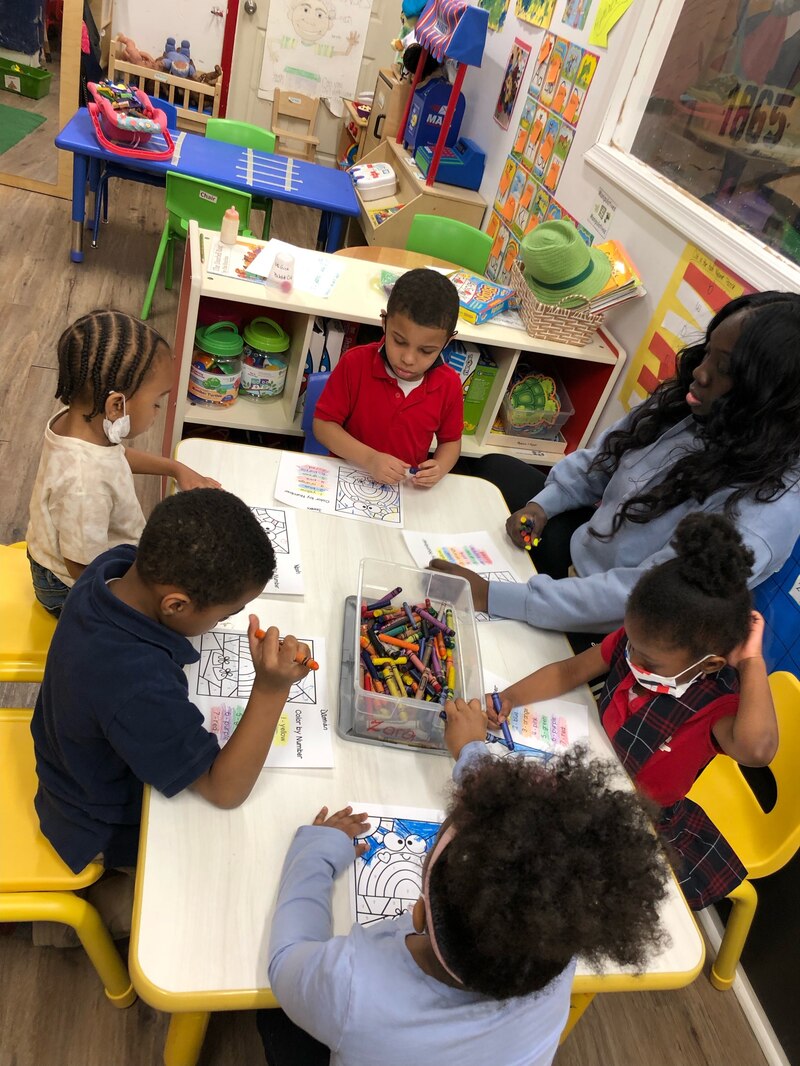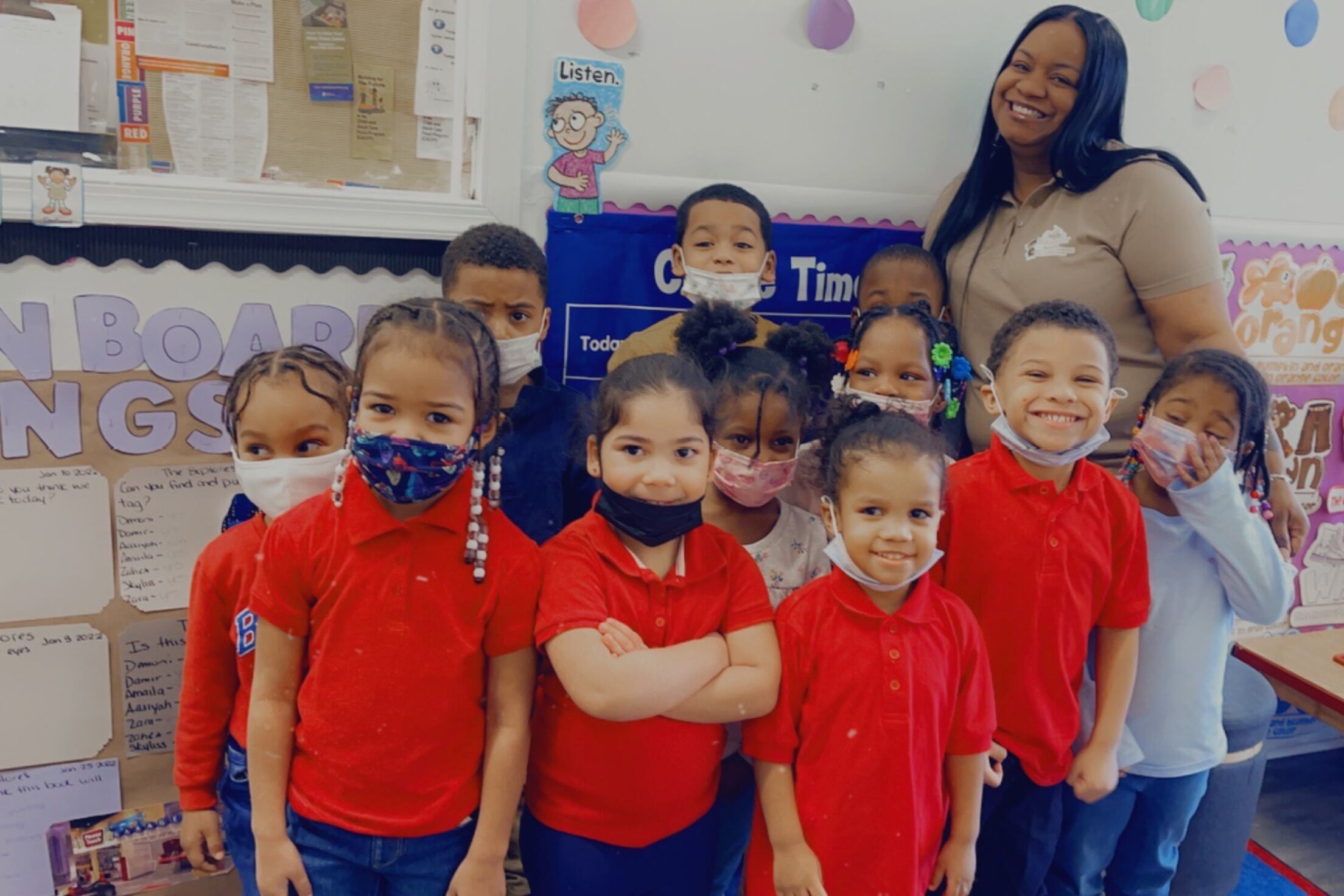Philadelphia’s free preschool program doesn’t offer the 6,500 seats city leaders envisioned when it launched more than five years ago, but a modest expansion planned for the coming school year could bring the number to 4,300.
Slowed initially by litigation over the sugary beverage tax that funds the PHLpreK program, the pandemic also took a toll. Revenues from the beverage tax declined about 15% in the first two years of the pandemic, and stalled a 1,700-seat expansion. This school year, the city did not fill all 4,000 seats funded through the program.
Sean Perkins, Philadelphia’s chief of early childhood education, said city officials try to be strategic in deciding which parts of the city to put PHLpreK seats in, but supply and demand don’t always align.
“We have more families who have completed applications than there are seats … but we still have vacancies, too,” he said.
Mayor Jim Kenney’s proposed budget for the coming year includes about $3.9 million in additional PHLpreK funding, which will help pay for 300 new seats. The City Council is expected to approve that expansion when it votes on the upcoming budget later this month.
Currently, the city spends about $41 million a year on the preschool program. Increasingly, cities and states are offering tuition-free preschool as a way to prepare children for kindergarten and provide key learning experiences during a critical period of development.
PHLpreK, which began in 2017, provides 5.5 hours a day of free preschool to 3- and 4-year-olds in Philadelphia. Although PHLpreK serves children regardless of family income, about 70% come from lower-income families, Perkins said.
Ebony Baggett, who owns the Bright Minds, Bright Beginnings Early Learning Center, is hoping to add six additional PHLpreK slots for the next school year. The 26 slots she has now — some at her Cobbs Creek center and some at her Strawberry Mansion site — always fill up fast.
Compared to Pre-K Counts, the state-funded preschool program for low-income families, she said the city’s program is easier for families because there’s no income verification requirement — just a residency requirement.
“It’s easier for the parents and they’re more likely to enroll,” she said.
Adelaida Gutierrez, a mother of four who works as a home health aide, has a 5-year-old daughter who’s just finishing two years in PHLpreK at Bright Minds, and a 3-year-old daughter, who will start in the fall.
“With the pre-K being free, it is helpful,” she said. “How would I be able to afford full-time child care?”
Gutierrez’s 5-year-old daughter Skyliss has struggled at times with preschool, crying at drop-off and mostly preferring to play alone. Guiterrez suspects she may be on the autism spectrum like her older brother, and has an appointment to have Skyliss evaluated in August.
But Gutierrez has also seen signs of progress for Skyliss at Bright Minds. Skyliss has learned to write her name, doesn’t “baby talk” as much as she used to, and cries less often since she began carrying a photo of her parents to preschool.
Finding solutions for initiative’s roadblocks
City officials say PHLpreK’s biggest challenge is the chronic shortage of qualified preschool staff. Part of the problem is the industry’s low pay, but the job also entails long hours and, at times, stressful conditions.
“Philadelphians have an increased level of poverty and have experienced various traumas … and that costs a lot and it actually takes a lot of energy and training for the teachers and the support staff,” Perkins said.

To help address such challenges, the city last year launched the SPARK Quality Support Center, an effort that provides free training, coaching, and support to PHLpreK providers. While most PHLpreK providers already have one of the top two ratings in the state’s four-star quality rating system, SPARK staff also work with lower-rated providers to help them improve.
“All of the work that they do with providers is 100% catered to what the provider needs,” said PHLpreK Director Denise Bermudez. “It’s an amazing opportunity for them.”
Jessica Munoz works at Bright Minds and sends her 5-year-old son Damir there through PHLpreK. Damir, who enjoys dancing, playing with Transformers, and watching Paw Patrol, suffers from anxiety. But Munoz said he’s learned a lot during his two years in the program, including how to identify his name, letters, and numbers.
In the fall, he’ll head to kindergarten at a charter school in the Juniata section of lower Northeast Philadelphia. Although PHLpreK doesn’t run in the summer, Damir will get a little more time at Bright Minds if Munoz, who earns $15 an hour, is granted child care subsidies to cover summer tuition there.
Baggett wishes the city’s preschool program ran year-round so all participants would have a safe place to go in the summer.
“Ten months is a huge challenge,” she said. “Our program is in a high-need area so … a lot of times there’s violence happening outside our four walls. As a provider, it gives me anxiety.”
Baggett said a full-year schedule would also help financially and prevent reduced staff hours in the summer.
But it’s not clear if PHLpreK will ever grow to a full-year program, or when it will reach the mayor’s goal of serving 5,500 children annually — a number revised down from the original 6,500 estimate.
While revenues from Philadelphia’s sweetened beverage tax have rebounded to pre-pandemic levels — the tax brought in about $77 million this year — city officials estimate proceeds from the tax will peak at $79 million in 2024 and then fall back to about $77 million by 2027.
City officials say such a decline wouldn’t negatively affect the program.
“Overall, these fluctuations are minimal and will not hinder the administration’s plans to expand PHLpreK nor the other core programs funded by the tax,” city spokesman Mike Dunn said in an email.
Ann Schimke is a senior reporter at Chalkbeat, covering early childhood issues and early literacy. Contact Ann at aschimke@chalkbeat.org.






